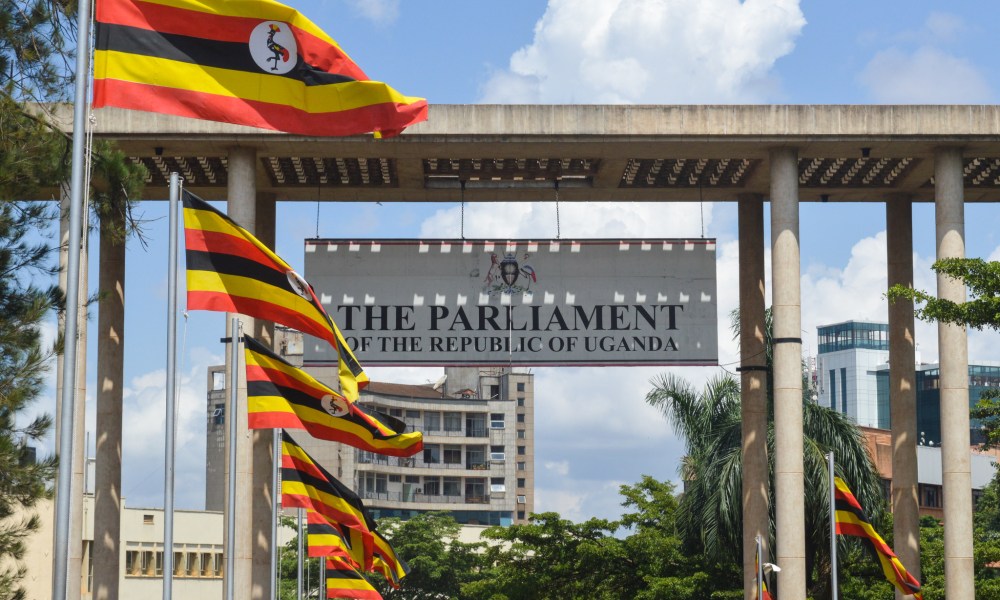
How Museveni’s Regime Is Systematically Dismantling Uganda’s Democracy
By Alexander Luyima | Special Correspondent
KAMPALA – The government’s proposed amendment to the Uganda People’s Defence Forces (UPDF) Act has sparked outrage among legal scholars, human rights defenders, and opposition leaders, who say it marks a dangerous turning point in the country’s governance.
The UPDF Amendment Bill—presented as a response to the 2023 Supreme Court ruling barring military trials of civilians—has instead expanded military powers and entrenched the very practices the court condemned.
> “This isn’t compliance—it’s contempt,” said Nicholas Opiyo, a leading human rights lawyer. “The court said military trials for civilians are unconstitutional. This bill doesn’t fix that—it entrenches it.”
Under the proposed changes, military courts will now have authority over offenses such as treason and terrorism—charges commonly used against journalists, activists, and political opponents. The bill also permits summary trials and expands sentencing powers to include capital punishment.
Critics argue that this bill codifies a system of repression and reverses decades of constitutional progress.
In 2005, a similar amendment enabled the military prosecution of then-presidential candidate Kizza Besigye. To this day, many of his supporters remain imprisoned after what observers called politically motivated convictions.
A Shadow Presidency in Uniform?
At the center of the controversy is General Muhoozi Kainerugaba, the current Chief of Defence Forces and son of President Museveni. His growing political influence and control over security agencies raise fears that Uganda is being militarized under the guise of reform.
Earlier this year, Muhoozi tweeted—then deleted—a message declaring that “traitors should be hanged,” referring to opposition figures including Bobi Wine and Besigye.
In addition to his military role, Muhoozi leads the Patriotic League of Uganda (PLU), a pressure group accused of operating like a paramilitary outfit. The PLU recruits youth, mobilizes security rhetoric, and intimidates perceived dissenters. Legal experts say this violates Article 208(2) of the Constitution, which requires the UPDF to remain non-partisan.
In Karamoja, UPDF forces under Muhoozi’s command have been accused of extrajudicial killings, torture, and indiscriminate arrests.
> “They don’t distinguish between rebels and civilians,” said a Karamojong elder. “If you’re poor and own a gun, you’re a target.”
> “Muhoozi isn’t just a soldier—he’s a political project,” said Dr. Frederick Golooba-Mutebi, a political analyst. “This bill is about giving him the legal tools to eliminate rivals.”
Militarization’s Human Toll
The militarization of justice in Uganda is not theoretical—it is already being felt by citizens across the country.
Since 2021, more than 1,000 Ugandans have been forcibly disappeared by security operatives. Many have been held in ungazetted detention centers, denied legal representation, and subjected to torture by the Chieftaincy of Military Intelligence (CMI).
During the 2021 post-election unrest, over 150 civilians were killed. Witnesses reported that UPDF soldiers opened fire on unarmed protesters in full view of the public.
> “They beat me for hours, asking if I supported Bobi Wine,” said one detainee, who was held for 72 days without charge. “When I said no, they laughed and said, ‘You’re still guilty.’”
What’s at Stake
If enacted, the UPDF Amendment Bill will:
Undermine the civilian judiciary by handing more power to military courts;
Allow the state to charge and execute political opponents under vague definitions of terrorism;
Give the military sweeping powers during the 2026 general elections, including the use of force against voters.
Despite mounting evidence of abuse, international partners—including the European Union and United States—remain quiet, prioritizing economic and security deals over accountability.
The Final Blow to Constitutionalism?
Observers warn that the UPDF Amendment Bill could mark the point of no return for Uganda’s democracy.
> “This is not just legislation,” said one civil society leader. “It is the final dismantling of constitutional order. Once passed, reversing it will take more than activism. It will take a revolution.”
Uganda now faces a choice: allow military law to override civilian governance—or take a stand while it is still possible.
> “The arc of the moral universe is long, but it bends toward justice—unless we let dictators break it.”
— Adapted from Martin Luther King Jr.
Related
https://hoimapost.co.ug/the-updf-amendment-bill-a-legal-coup-in-plain-sight/
https://hoimapost.co.ug/the-updf-amendment-bill-a-legal-coup-in-plain-sight/ , hoimapost.co.ug
https://hoimapost.co.ug/the-updf-amendment-bill-a-legal-coup-in-plain-sight/ , https://hoimapost.co.ug/the-updf-amendment-bill-a-legal-coup-in-plain-sight/ ,
hoimapost.co.ug , https%3A%2F%2Fhoimapost.co.ug%2Fthe-updf-amendment-bill-a-legal-coup-in-plain-sight%2F